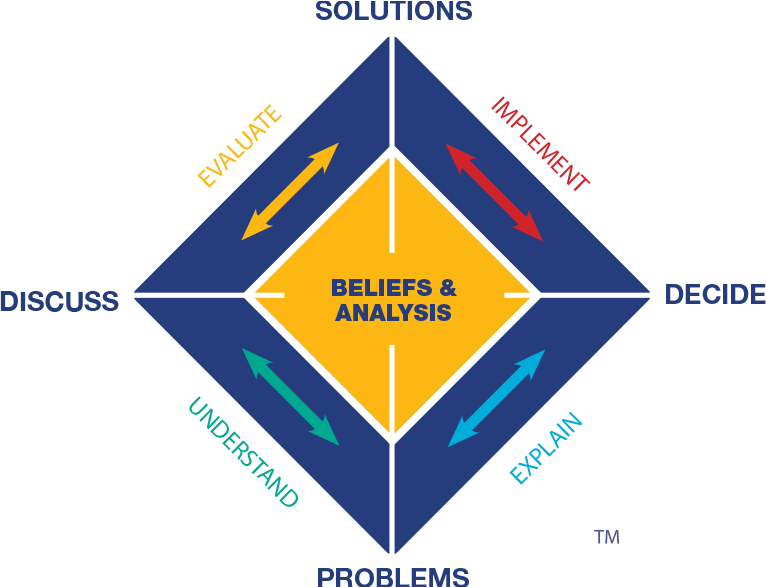Beliefs and Analysis
-
-

To what extent do you make your decisions based on your beliefs, or are they based on hard facts and analysis? Although we are taught to be rational, objective and detached in our decision making, it is not always easy to do. Beliefs and emotions are a strong combination that influences decisions.
There are often political considerations, reflecting the needs of people, not just the needs of the situation. Politics comes into play very often in decision making. This is seen most clearly in local and national politics, where people lobby for their particular interest. Decisions are therefore made to satisfy key players, particularly where votes are concerned, rather than reach a rational decision on the facts.
People who occupy certain positions may have strong views on particular topics. This determines what evidence they look for and what conclusions they draw. If someone strongly believes that women should have more opportunities, then expect them to appoint more women to senior posts. They will also fight for budgets which provide education opportunities and other means of advancing this cause. The same is true for people whose beliefs favor trade unions, or older workers, or working mothers, or any other set of principles. That is not to say that such people suspend, or do not use, their analytical skills. They do, but in support of their beliefs. They can be very analytical and focused, making sure that what they believe in succeeds. This is clearly seen in national and local politics, where the parties split on ideological grounds, rather than just the facts.
-
Mahatma Gandhi
Most leaders have an interesting combination of strong beliefs linked to an ability to analyze the problems around them. Mahatma Gandhi is an example. He was confronted with racial prejudice during the time that he lived in South Africa. He fought for the rights of minorities, in a particular style that became known as the pacifist approach. He continued this upon his return to India, where he opposed the rule of the British Raj, by marches and passive resistance.
Mahatma used both his strong beliefs and his ability to negotiate, in an analytical way, in order to improve the conditions of those he represented. In this avatar video, learn how he came to possess such beliefs and what influenced him to become such a great leader.
-
Applications

In the work place, it is important that the problem solving and decision making meets the needs of the market, not just personal beliefs. The fate of the large communist states is an indication of how belief-led decisions were not in touch with the market reality.
Therefore, look at each assignment that you have. Ask yourself how the requirements tie up with your beliefs and how you will make a decision that fits the needs of the situation.
-